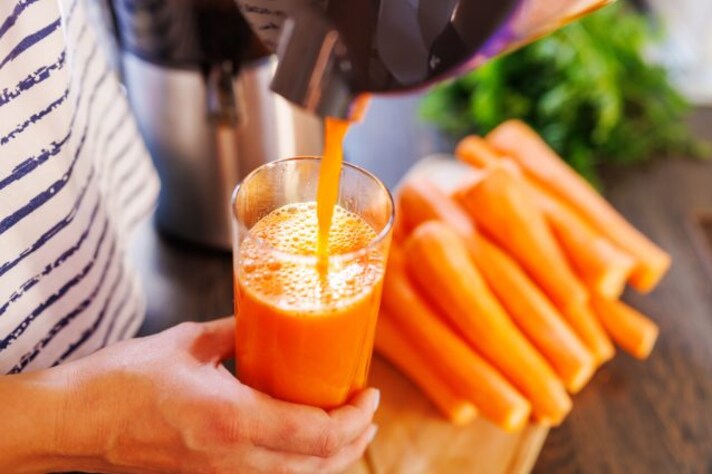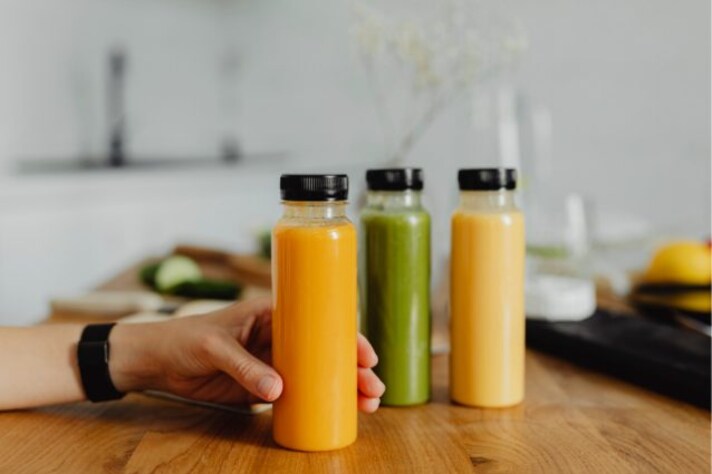
Freshly squeezed juice is the kind of kitchen triumph that feels both indulgent and virtuous—a burst of vitamins, freshness, and pure flavor in a glass. Whether it’s a vibrant orange juice to jumpstart your morning or a leafy green blend for that health kick, fresh juice is at its peak right after pressing. But if you’re reaching for a plastic container to store it, you might be doing your juice—and yourself—a serious disservice. Here's why plastic and fresh juice just don't mix, no matter the fruit or veggie in your glass.
Plastic Can Alter the Taste (and Not in a Good Way)
You’ve taken the time to squeeze out every last drop of citrus goodness, so why risk compromising its flavor? Plastic containers can sometimes release subtle chemical compounds into the juice, especially when exposed to acidity or temperature changes. This interference can dull the bright, natural flavors of your juice and even give it a slightly "off" taste over time. The last thing you want when sipping your homemade juice is a hint of…plastic.
Though we won’t get too medical here, it’s worth noting that plastic, especially when dealing with acidic juices like lemon, orange, or tomato, can sometimes release compounds into the liquid. Even high-quality plastics aren't immune to this risk. The natural acids in juice can gradually break down the plastic, leading to chemical leaching—think of it as a silent invader that wasn’t invited to the juice party.

Fresh Juice Deserves Freshness—Plastic Won't Keep It
Fresh juice is at its nutritional and flavorful peak the moment it’s squeezed. The longer it sits, the more it oxidizes, breaking down essential nutrients. Plastic containers, especially lightweight ones, are often slightly porous, allowing oxygen to creep in more easily. This speeds up oxidation, which not only dulls the juice’s flavor but can diminish its vitamin content faster than you’d expect. Glass, on the other hand, provides a much better seal, keeping both the nutrients and taste intact for longer.
Plastic Absorbs Odors
If you’ve ever stored leftovers in a plastic container only to find the scent of last week’s spaghetti sauce lingering, you know exactly what we’re talking about. Plastic has a pesky habit of absorbing odors and flavors, which can transfer to your juice. Imagine juicing a fresh batch of watermelon only to find it carrying a faint whiff of yesterday's garlic pasta. Not exactly the refresher you had in mind.
Plastic Scratches Easily—and Scratches Hold Bacteria
Plastic may seem like a durable choice, but it’s surprisingly prone to scratches over time. Those tiny nicks and grooves can trap bacteria, even with regular washing. When you’re dealing with fresh juice, where minimal processing means no preservatives, hygiene is everything. Glass containers, by contrast, are more resistant to wear and far easier to keep spotless.

Plastic and Temperature Changes
Juice is often stored cold or even frozen for later use, and here’s where plastic shows its weaker side. Freezing juice in plastic containers can cause the material to become brittle, increasing the chances of cracking and leaking. On the flip side, heating or even leaving plastic containers in warm conditions (like a sunny countertop) can encourage chemical reactions between the plastic and the juice. Glass jars, especially those made for preserving, handle temperature swings far better and maintain a stable environment for your juice.
Glass Is the Clear Winner for Your Juice
So, what’s the better alternative? Glass containers take the crown here. Glass is non-reactive, meaning it won’t mess with your juice’s flavor, freshness, or nutritional value. It’s also easier to clean thoroughly, resists scratches, and won’t absorb odors. Plus, there’s something satisfying about seeing your jewel-toned juices through clear glass—it just feels fresher, doesn’t it?
;Resize,width=767;)
